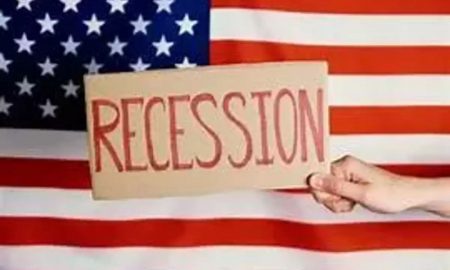
Three Retirement Rules You May Break If You Wish

When planning for retirement you might have been advised to adhere to some specific rules that have existed for a substantial period of time. Those rules worked for several individuals who took retirement before you. However, that doesn’t necessarily imply that they would work for you as well. Different people have different circumstances based on which they make their plans for the future. Retirement is a crucial period and therefore, decisions should be taken very smartly. You might not find these rules suitable, ab=nd if that is the case, you can go ahead and break them. Below are three rules of retirement that you can avoid if you feel like it. Do take a look!
You Should Stick to the Four Percent Rule
 Financial experts have given their full support to the four percent rule for quite some time now, even though this rule has been out of date. According to the rule, if you start the retirement period by taking out four percent of your savings in the first year and adjust the withdrawals that you make later on for inflation, you can enjoy the savings for three decades. Theoretically, it might seem to be a good idea. Practically, it’s not. It assumes that at the time of retirement, your portfolio will have stocks and bonds in equal numbers. In reality, you might either have a conservative portfolio focusing on bonds or an aggressive portfolio that boasts of stocks.
Financial experts have given their full support to the four percent rule for quite some time now, even though this rule has been out of date. According to the rule, if you start the retirement period by taking out four percent of your savings in the first year and adjust the withdrawals that you make later on for inflation, you can enjoy the savings for three decades. Theoretically, it might seem to be a good idea. Practically, it’s not. It assumes that at the time of retirement, your portfolio will have stocks and bonds in equal numbers. In reality, you might either have a conservative portfolio focusing on bonds or an aggressive portfolio that boasts of stocks.
It is also based on the assumption that you would love to see your savings giving you company for 30 years. The lifespan of a common American has been increasing in recent times. In case you take early retirement, your savings should last for more than 30 years. If you take a late retirement, you wouldn’t have to worry about how long your savings would last. The crux of the matter is that instead of four percent, you can grab a better rate of withdrawal. So, when you are making a decision, you have to take your financial goals, needs, investments, and your life expectancy into account.
You Should Not Claim Social Security Before Reaching FRA
 You will often come across people who tell you to not claim Social Security before you attain FRA – full retirement age – as you will lose out on your monthly benefits to a certain extent. 66 or 67 is considered to be the full age of retirement which makes the last part exactly how it is. If you claim Social Security early, you will receive lower benefits every month. However, that doesn’t imply that you need to wait for your full retirement age.
You will often come across people who tell you to not claim Social Security before you attain FRA – full retirement age – as you will lose out on your monthly benefits to a certain extent. 66 or 67 is considered to be the full age of retirement which makes the last part exactly how it is. If you claim Social Security early, you will receive lower benefits every month. However, that doesn’t imply that you need to wait for your full retirement age.
In case you are stepping into your retired life with some huge savings, you might be ready to enroll for Social Security even at the age of 62, the earliest possible age for retirement, and lay your hands on the money sooner. Likewise, in case you have no expectations to live longer, claiming Social Security before your FRA can get you a higher payout, and you wouldn’t have to worry about lower monthly benefits.
Garner Enough Savings to Replace 70% to 80% of Your Previous Paycheck
 This is another common retirement rule that you get to hear quite often. You will be advised to garner enough savings to replace 70% to 80% of your previous income to lead a comfortable retired life. You need to keep in mind that this rule assumes that you usually spend a major portion of your earnings. Suppose your annual income is $100,000 and you shell out something around $50,000 on your living expenses annually.
This is another common retirement rule that you get to hear quite often. You will be advised to garner enough savings to replace 70% to 80% of your previous income to lead a comfortable retired life. You need to keep in mind that this rule assumes that you usually spend a major portion of your earnings. Suppose your annual income is $100,000 and you shell out something around $50,000 on your living expenses annually.
With this situation under consideration, you can assume that you would need an amount in the range of $70,000 to $80,000 as your retirement income every year. Looking at this from a different perspective, you might have set some massive goals for your retirement, like traveling the world or engaging in your favorite activities that you avoided due to lack of time. If that is the scenario, then you might have to follow this rule.
These three rules are among those that are actually meant to be broken. Always remember that what works for most people might not work for you, so decide with a calm mind.
More in Business & Finance
-
`
Curious About Travis Kelce’s Net Worth? Here’s the Scoop!
Travis Kelce’s name echoes through NFL stadiums, synonymous with athletic prowess and electrifying plays. But beyond his touchdown celebrations and record-breaking...
June 10, 2024 -
`
Everything You Need to Know About an Assumable Mortgage
What is an Assumable Mortgage? Whether you are a buyer or a seller, understanding the concept of assumable mortgages can open...
June 6, 2024 -
`
Layoff vs. Fired – Understanding the Crucial Differences
When it comes to job loss, understanding the distinction between being layoff vs. fired is crucial. While both situations result in...
May 30, 2024 -
`
When Are Business Taxes Due 2024? Essential Dates and Deadlines
Tax deadlines can be daunting, but fear not! Let’s break down everything you need to know to stay on top of...
May 22, 2024 -
`
How Much Does Jeff Bezos Make Per Hour? It’s More Than You Think!
Jeff Bezos, a name synonymous with innovation and wealth, stands as one of the world’s richest individuals. While Bernard Arnault and...
May 16, 2024 -
`
What is Portfolio Investment Entity (PIE) and How Can it Benefit You?
In the intricate world of finance, individuals seek avenues to optimize their investments while minimizing risks. One such avenue gaining traction...
May 9, 2024 -
`
What is a Bank Statement? Understanding its Definitions, Benefits, and Prerequisites
Ever wondered where your money goes? A bank statement is like a financial report card, giving you a clear picture of...
April 30, 2024 -
`
Branded Content: A Genuine Way to Connect With Your Audience
Have you ever binge-watched a series on Netflix, only to later realize that the beverage everyone’s sipping on is that brand...
April 23, 2024 -
`
What Car Does Jeff Bezos Drive? Find Out Inside His Exclusive $20 Million Collection
Have you ever wondered what car does Jeff Bezos drive? This man’s tastes in vehicles are as expansive as his business...
April 17, 2024















You must be logged in to post a comment Login